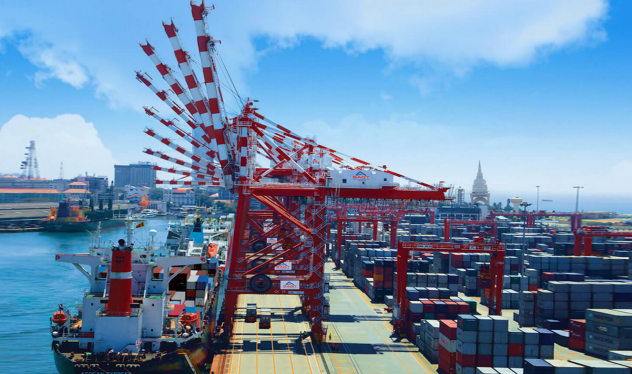
India places faith in Adani Group to build strategic box terminal in Colombo port
NEW DELHI : When India struck a government-to-government deal with Sri Lanka to build and run the West Container Terminal (WCT) at Colombo port to check China’s growing clout in the region, it turned to the private Adani Group to implement the project disregarding one of the dozen state-owned ports for the task.
Colombo port is a key regional trans-shipment hub through which a large portion of India’s export-import cargo containers are trans-shipped every year. In fact, 45 per cent of Colombo’s trans-shipment volumes either originate from or are destined for an Adani port terminal in India.
India has for long been looking for a presence in Colombo port for strategic and security considerations.
Ironically, China has been using a state-owned company – China Merchants Port Holdings Company Ltd – for its strategic and geo-political play in the maritime arena as part of its ‘Belt and Road Initiative’. China Merchants holds 85 per cent stake in Colombo International Container Terminals Ltd (CICT), one of the four terminals at Colombo port.
China Merchants also holds a 99-year lease to run the Hambantota port in the southern part of the island nation.
India Ports Global bypassed
In picking India’s biggest private port operator (APSEZ) for the Colombo deal, the government also bypassed India Ports Global Ltd, the state-owned entity tasked with developing and running the strategically important and India-funded Chabahar port in Iran.
India Ports Global was initially formed as a joint venture between Jawaharlal Nehru Port Trust (JNPT) and Deendayal Port Trust, but shares were later purchased by the Sagarmala Development Company Ltd, a firm controlled by the Shipping Ministry, to insulate the two state-run port trusts from the possible impact of the US sanctions on Iran.
Maritime industry sources say that some “mechanism” or “procedure” should have been followed on “structuring” the deal and in “selecting” the entity to “represent” India as the operator of the terminal in Colombo port.
India Ports Global, which the government intended to use as a vehicle for all overseas port ventures, could have been drafted as the “focal agency” for this task, a source tracking the project said.
“Since it is a government-to-government project, the government should have taken direct control of or stake in the Colombo terminal either through India Ports Global or through one of the state-owned major ports such as JNPT,” the source said.
This could have been done by running a selection process in which the private entity offering the most shareholding to IPGL or JNPT in the terminal operating company at Colombo port would be awarded the deal, he said.
“The government’s direct involvement in the Colombo terminal is all the more necessary because the project has been conceptualised to further India’s strategic and geo-political interests,” he said.
“Agree, there is no better port operator than Adani to execute the project. It has deep-pockets, reputation and capability to run the terminal successfully. But, Adani is not part of the government,” he added.
“It may be the right strategy by India and also by Adani to develop the Colombo terminal, the knowledge of which will benefit them in bringing trans-shipment business to Vizhinjam in Kerala, which Adani is developing as a transshipment port,” said Ramesh Singhal, Director, i-maritime Consultancy Pvt Ltd.
Source : Business Line

